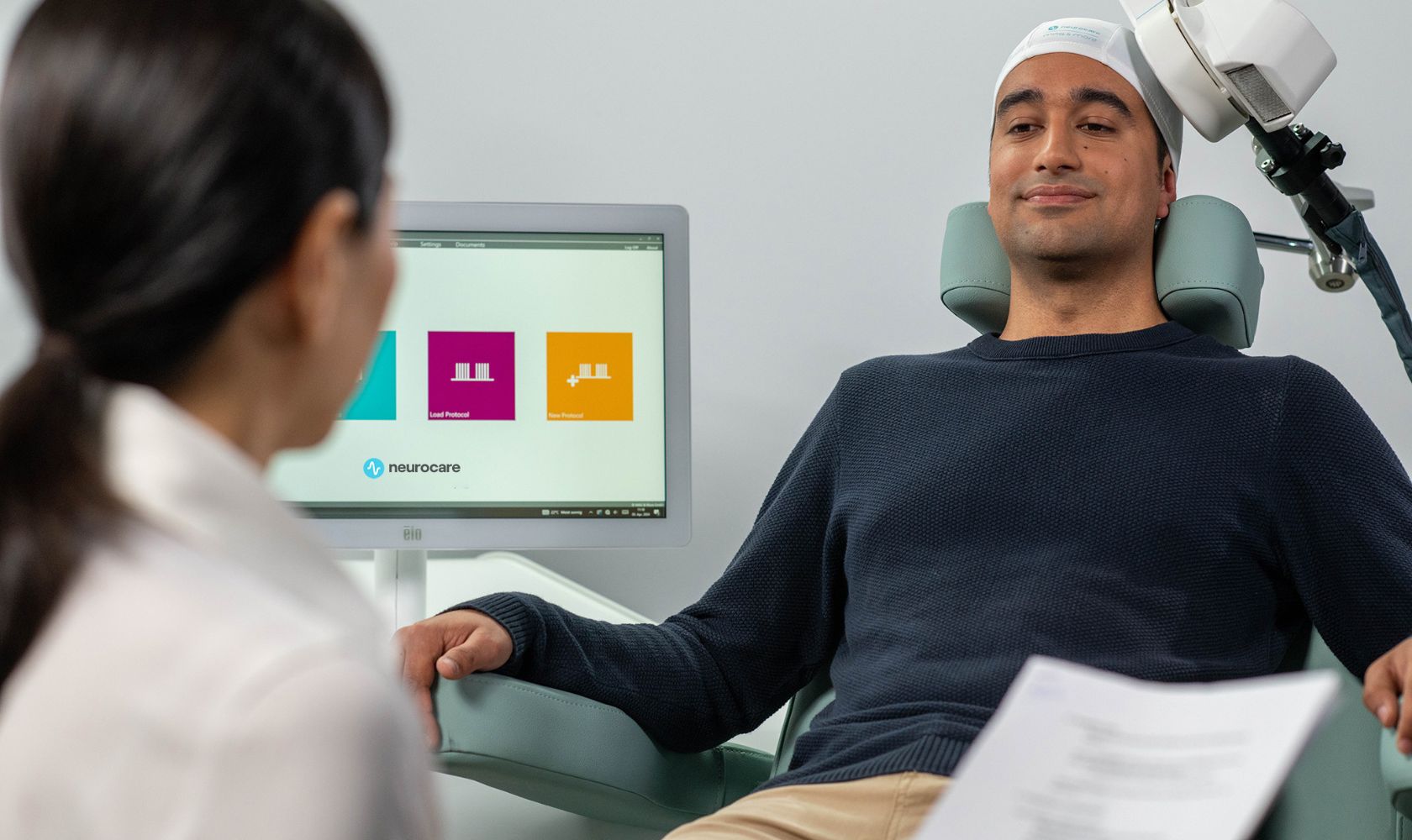The utilization of a noninvasive brain stimulation technique; transcranial magnetic stimulation (TMS) especially for depression and other mental illnesses has gained significant attention. The rising rates of mental health disorders make many seek any other option than medications and counseling sessions, including TMS therapy. Nevertheless, one question that seriously stands out is whether TMS brain treatment is safe for long-term use. Now, it makes sense to discuss its effectiveness, safety, and possible consequences of the long-term application of TMS therapy.
Safety of TMS Brain Treatment in the Short and Long Term
TMS is generally considered safe if it is administered by qualified personnel and it has been seriously studied in the scientific community. Long-term safety should not be confused with the undesirable outcomes that may be expected if the product or technology remains in use over a long period.
Short-Term Adverse Reactions
The majority of patients receiving TMS brain treatment report few adverse effects, and these are usually transient. Lightheadedness, headaches, and scalp pain at the stimulation site are typical short-term adverse effects. Usually minor, these adverse effects go away after a few sessions. Seizures are among the more serious adverse effects that patients may occasionally encounter. These side effects however are very rare, and clinical trials prove that the risk of seizure is less than 0.1%. Contrary to this, before subjecting a patient to TMS therapy, the patient’s medical history is reviewed to negate for instance history of epilepsy which is a contraindication.
Extended Safety
Studies on the long-term safety of TMS brain treatment show that there are no appreciable health hazards associated with extended use over a few weeks. TMS is frequently utilized as a component of a planned treatment plan that lasts four to six weeks and includes follow-up maintenance sessions as required. Positive results from the therapy have been demonstrated during this time, with no notable long-term impacts on brain function or general health. Some people have had several rounds of TMS treatment without suffering from serious side effects.
Continuous patient monitoring throughout treatment is a crucial component of long-term safety. This guarantees that any negative responses or issues are dealt with right away, allowing for any necessary modifications to the treatment plan.
Effects on the Brain
The limited effect of TMS brain treatment on cognitive performance is a major worry for anyone thinking about using it for an extended period. TMS is generally thought to have neutral effects on cognitive capacities, in contrast to other drugs that may have negative effects related to memory or focus. After receiving TMS therapy, some patients even report improvements in cognitive performance, especially in areas. This is thought to be the case because TMS therapy activates brain regions related to mood control, which can improve cognitive function in general.
Neuroplasticity and Alterations in the Brain
Because TMS affects neuroplasticity—the brain’s capacity to rearrange itself and create new neural connections—it is thought to be a rather safe long-term brain treatment. The neuronal circuits in the brain are stimulated by TMS, which promotes the formation of new pathways that may lessen the symptoms of mental health disorders. Despite its strength, this procedure is also believed to be advantageous for long-term brain health. TMS therapy may offer long-lasting advantages without impairing cognitive function or general brain health by strengthening the brain’s innate capacity for adaptation and healing.
Regulation and Monitoring for Long-Term Safe Use
TMS brain treatment must be carried out under the guidance of trained specialists for long-term safety. For this reason, patients should make sure they are getting care from qualified, experienced professionals when they visit TMS consultancy in palm springs or other specialty clinics. TMS therapy specialists are qualified to deliver treatment safely and modify the protocol if adverse effects occur.
Safety regulations and requirements must also be followed. The Food and Drug Administration (FDA) oversees TMS brain therapy in numerous nations, including the US, guaranteeing that top-notch equipment is utilized and that the methods adhere to established guidelines for safe administration.
Long-Term TMS Brain Treatment’s Effectiveness
Although depression and other mental health conditions can be effectively treated with TMS brain treatment, the effects’ durability can vary. Some people benefit from TMS therapy for a long time; months or even years following treatment, they may no longer have symptoms. Others may experience waning effects over time, necessitating sporadic “booster” sessions to sustain improvement.
The severity of the mental illness, the patient’s reaction to the therapy, and whether the treatment is combined with additional therapeutic measures like counseling or medicine are some of the elements that frequently affect the long-term efficacy of TMS brain treatment. Continued use of TMS therapy can help patients restore symptom relief without resorting to more invasive therapies in the event of a relapse.
TMS Brain Therapy as a Component of a Comprehensive Treatment Strategy
Some patients may receive TMS brain treatment as a component of a comprehensive treatment program that also includes medication, lifestyle modifications, and psychotherapy. Long-term TMS use may be even more advantageous in these situations because it can complement other therapy modalities to offer all-encompassing care. Over time, people’s mental health may improve more sustainably if TMS therapy is combined with counseling or pharmaceutical management.
Furthermore, patients can stay on course and modify their treatment as needed with the support and frequent follow-ups of mental health specialists. Such an all-inclusive strategy ensures that the TMS therapy will remain a safe, efficient and effective therapeutic modality for long-term Mental Health disorders.
Conclusion
TMS brain treatment is a new way to treat people with mental disorders which is effective with the help of qualified specialists. It is not dangerous even when used for the long – term. Side effects may arise, but they are rare and usually mild. The therapy is most beneficial for clients, who suffer from depression and other diseases, which do not react to treatment, as it improves the mood and productivity of the brain without causing significant harm to its condition.
TMS when combined with other treatment plans will offer a long-standing solution because of its positive impact on integrative neural processes and the brain’s remedial processes. TMS brain treatment is a safe and efficient option for people looking for long-term relief from mental health issues, provided that it is carried out under the supervision of trained professionals.



